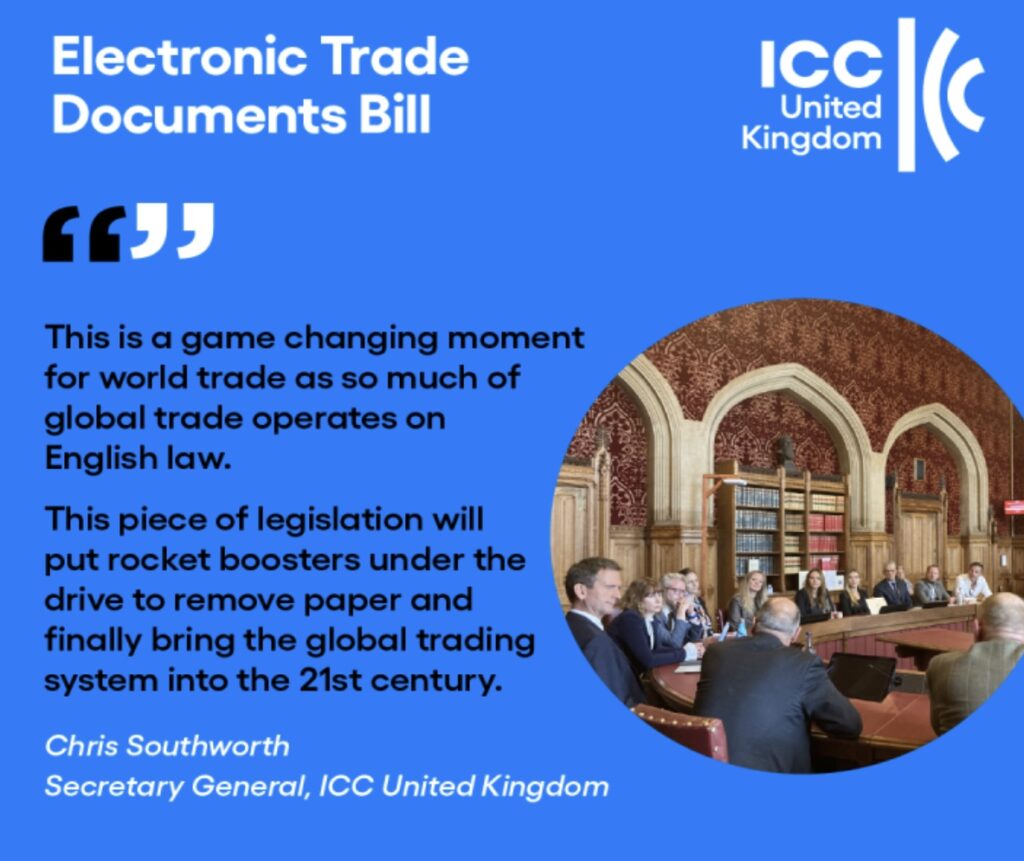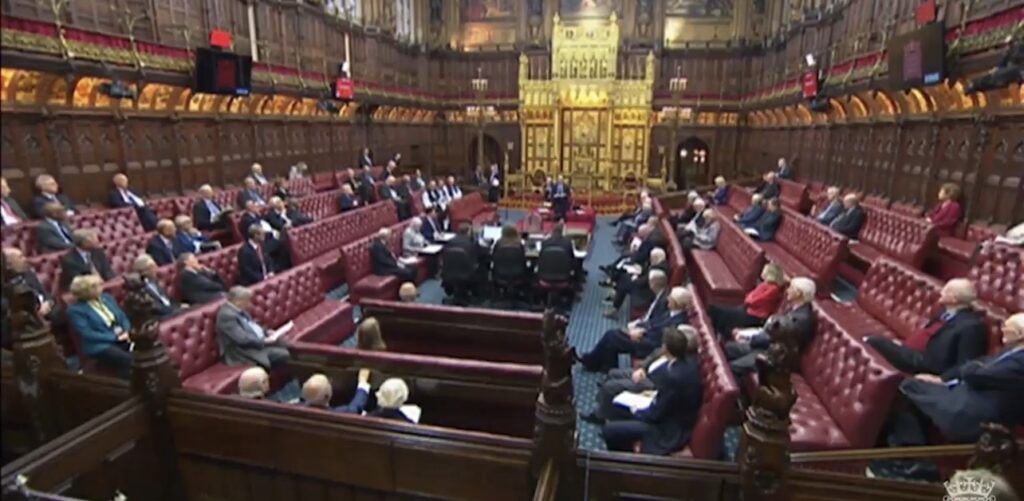Paperless trade for UK businesses to boost growth
It is a historic day for global trade, when the UK Electronic Trade Documents Bill was presented in the UN Parliament (House of Commons).
This is a major step forward of upgrading the international trade system to Global Trade 2.0.
- The Bill will make digital documentation legally recognised, reduce admin costs and make it easier for British firms to buy and sell internationally
- Processing times for electronic documents cut to 20 seconds and carbon emissions reduced by at least ten per cent

British businesses will be able to trade easier, faster and cheaper around the world thanks to new plans to remove needless paperwork and bureaucracy.
”The publication of the Bill is a game changer with huge economic gains to be made for trade if companies digitalise systems and remove paper. Trade plays a huge role in the global economy so digitalisation is vital to establishing a more sustainable system”
The Electronic Trade Documents Bill will boost the UK’s international trade, already worth more than 1,4 trillion GBp, and will reduce the estimated 28.5 billion paper trade documents printed and flown around the world daily.

Business-to-business documents such as bills of lading – a contract between parties involved in shipping goods – and bills of exchange – used to help importers and exporters complete transactions – currently have to be paper-based due to longstanding laws.

Under the Electronic Trade Documents Bill, digital trade documents will be put on the same legal footing as their paper-based equivalents to give UK business more choice and flexibility in how they trade.
The Bill will modernise old legislation such as the Bills of Exchange Act 1882 and the Carriage of Goods by Sea Act 1992.
Removing the legal obstacle to electronic versions of trade documents will significantly lower administration costs and is expected to provide a £1.14 billion boost to UK business over a ten-year period. It will reduce trade contract processing times from between seven and ten days to as little as 20 seconds.
Commonly used documents in the UK for the trade in or transport of goods which the Bill will enable to become electronic include:
- a bill of exchange
- a promissory note
- a bill of lading
- a ship’s delivery order
- a warehouse receipt
- a mate’s receipt
- a marine insurance policy
- a cargo insurance certificate
Read the entire announcement from UK Government here: Electronic Trade Documents Bill
You must be logged in to post a comment.